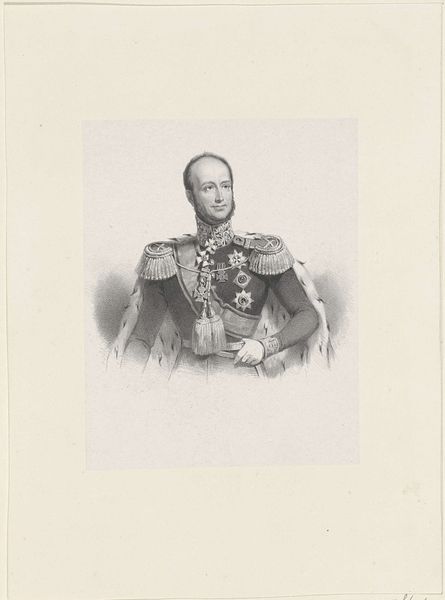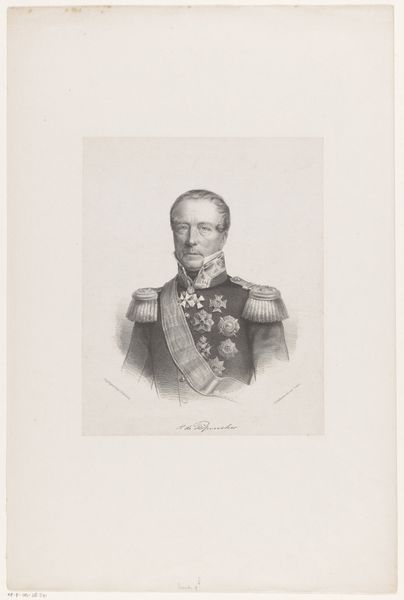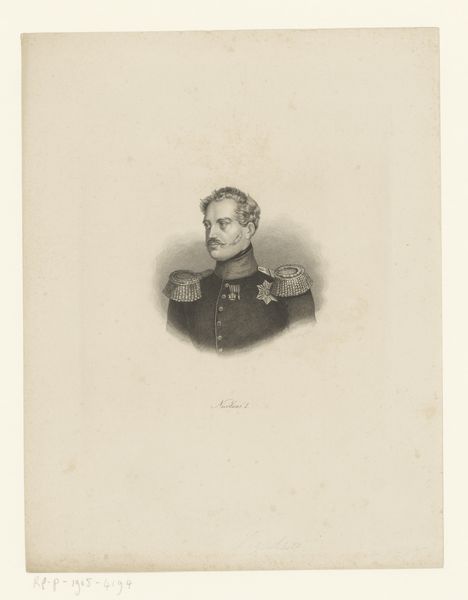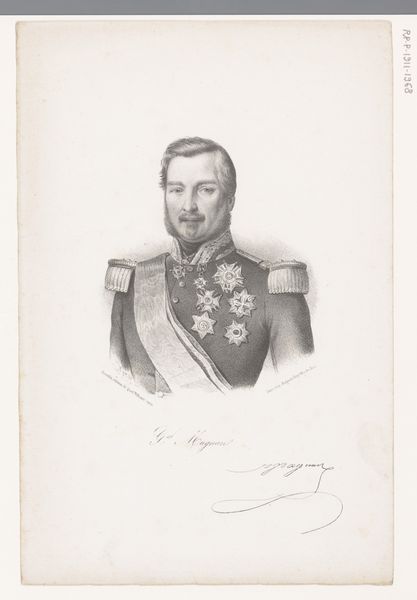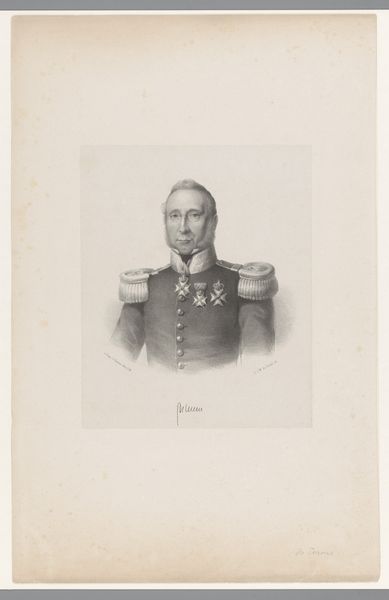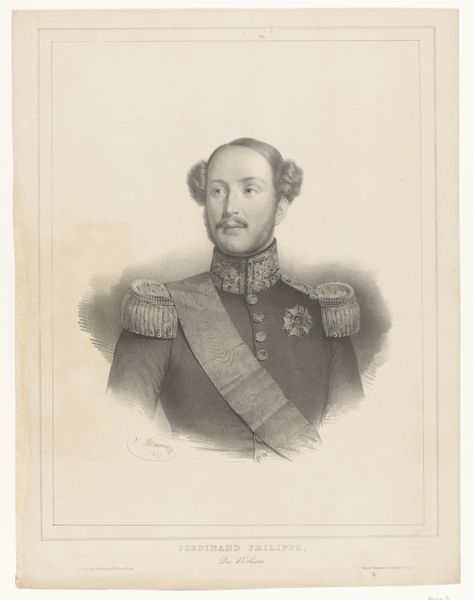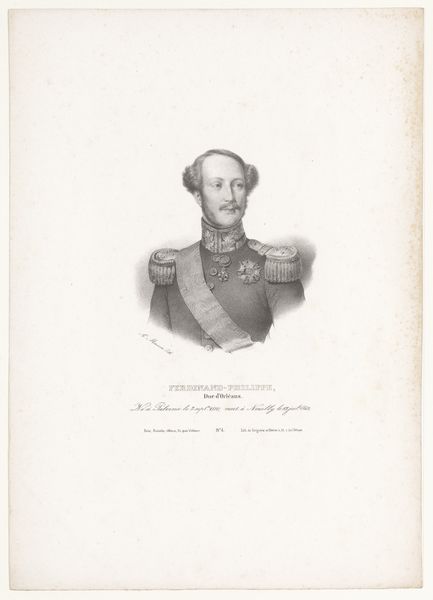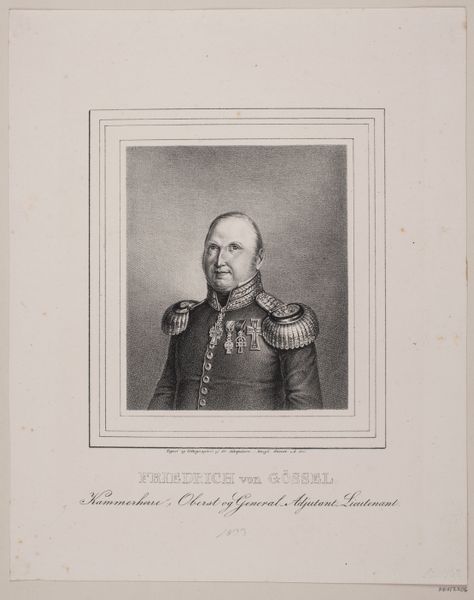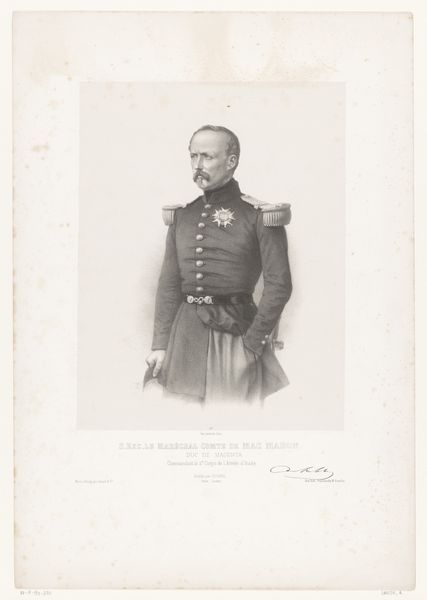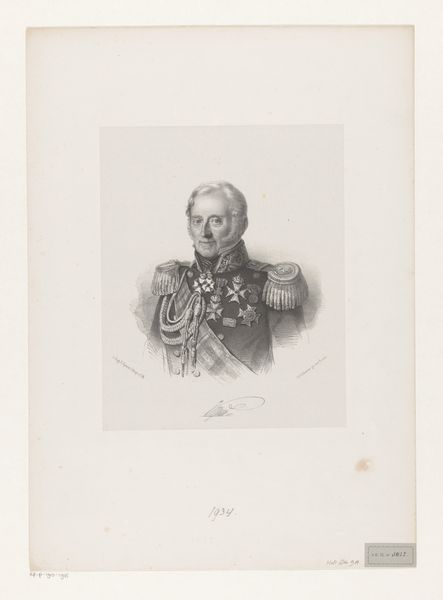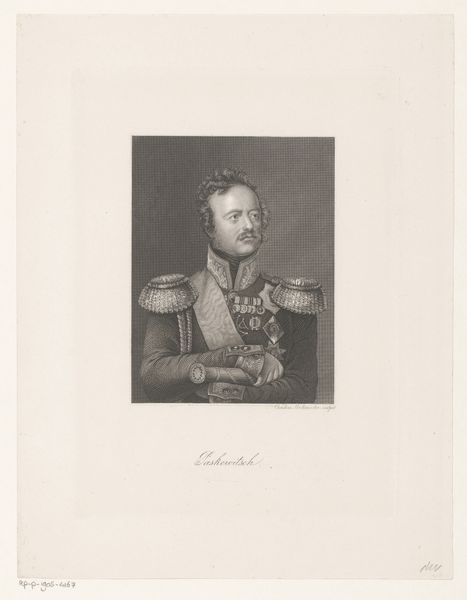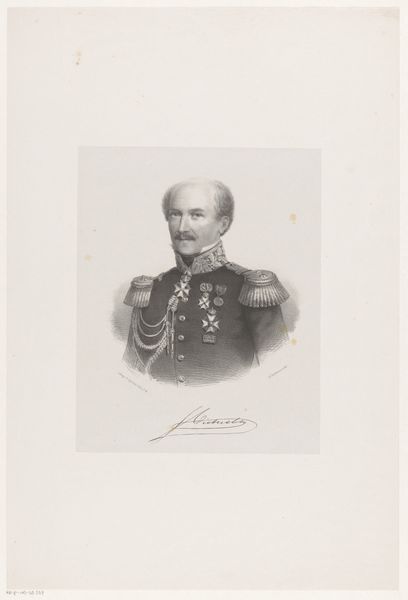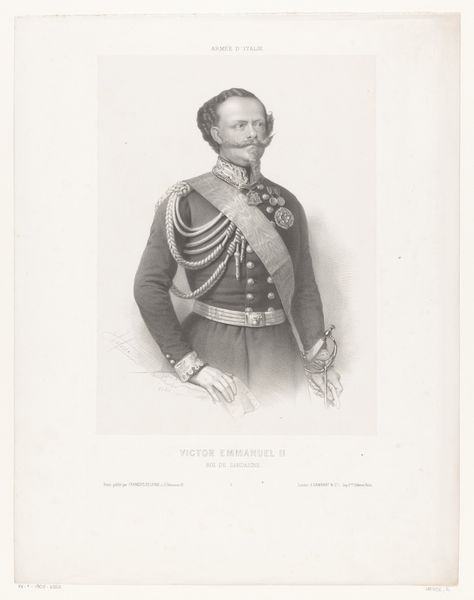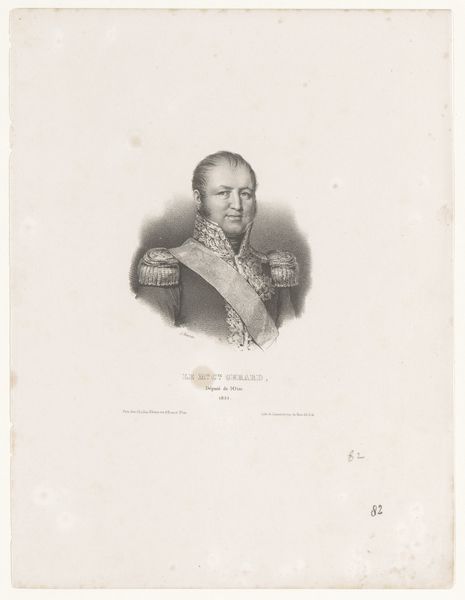
drawing, pencil
#
portrait
#
pencil drawn
#
drawing
#
pencil
#
academic-art
#
realism
Dimensions: height 535 mm, width 355 mm
Copyright: Rijks Museum: Open Domain
Editor: Here we have Johan Hendrik Hoffmeister's pencil drawing, "Portret van Godert van der Capellen," created sometime between 1851 and 1883. It's quite striking. The detail achieved with just pencil is impressive, and there's a certain sternness to the subject's gaze. What draws your eye when you look at it? Curator: Primarily, I'm drawn to the stark contrast and the artist's meticulous handling of light and shadow to model form. Notice the way the artist uses hatching and cross-hatching techniques with pencil to describe not just the form, such as the curvature of the face and the drape of the sash, but also the texture of the uniform. Editor: Yes, the detail in the epaulettes is amazing. Is the textural contrast something that was often seen at that time? Curator: Absolutely. Academic art from this period, which this drawing aligns with, heavily emphasizes realism and accurate representation. Consider the texture created to separate and illustrate form from one area to the other to enhance contrasts between fabrics. Are you not drawn to the gaze? Editor: You’re right, there’s a formal intensity created from this gaze. The gaze pierces, set perfectly above this rigid pose. Curator: Exactly. And how the balance is structured, with darker tones below balanced by a wide expanse of clear space above; it draws our eye up to connect with the eyes that engage us as viewers. There's much to unravel. Editor: I see that now. It's more than just a portrait; it's a carefully constructed visual statement, drawing attention to the powerful features of the man in command. I never knew formalist view would involve something so obviously portrayed in the end design. Curator: Indeed. Sometimes, the overt is simply expertly woven into the fabric of the image.
Comments
No comments
Be the first to comment and join the conversation on the ultimate creative platform.
